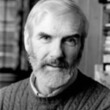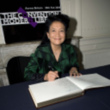1421: The Year China Discovered America
(Libby/OverDrive eAudiobook)
Available Platforms
Description
On March 8, 1421, the largest fleet the world had ever seen set sail from China. Its mission was "to proceed all the way to the ends of the earth to collect tribute from the barbarians beyond the seas" and unite the whole world in Confucian harmony.
When it returned in October 1423, the emperor had fallen, leaving China in political and economic chaos. The great ships were left to rot at their moorings and the records of their journeys were destroyed. Lost in China's long, self-imposed isolation that followed was the knowledge that Chinese ships had reached America seventy years before Columbus and had circumnavigated the globe a century before Magellan. Also concealed was how the Chinese colonized America before the Europeans and transplanted in America and other countries the principal economic crops that have fed and clothed the world.
Unveiling incontrovertible evidence of these astonishing voyages, 1421 rewrites our understanding of history. Our knowledge of world exploration as it has been commonly accepted for centuries must now be reconceived due to this landmark work of historical investigation.
More Details
Also in this Series
Published Reviews
Booklist Review
Menzies makes the fascinating argument that the Chinese discovered the Americas a full 70 years before Columbus. Not only did the Chinese discover America first, but they also, according to the author, established a number of subsequently lost colonies in the Caribbean. Furthermore, he asserts that the Chinese circumnavigated the globe, desalinated water, and perfected the art of cartography. In fact, he believes that most of the renowned European explorers actually sailed with maps charted by the Chinese. Though most historical records were destroyed during centuries of turmoil in the Far East, he manages to cobble together some feasible evidence supporting his controversial conclusions. Sure to cause a stir among historians, this questionable tale of adventure on the high seas will be hotly debated in academic circles. --Margaret Flanagan
Publisher's Weekly Review
A former submarine commander in Britain's Royal Navy, Menzies must enjoy doing battle. The amateur historian's lightly footnoted, heavily speculative re-creation of little-known voyages made by Chinese ships in the early 1400s goes far beyond what most experts in and outside of China are willing to assert and will surely set tongues wagging. According to Menzies's brazen but dull account of the Middle Kingdom's exploits at sea, Magellan, Dias, da Gama, Cabral and Cook only "discovered" lands the Chinese had already visited, and they sailed with maps drawn from Chinese charts. Menzies alleges that the Chinese not only discovered America, but also established colonies here long before Columbus set out to sea. Because China burned the records of its historic expeditions led by Zheng He, the famed eunuch admiral and the focus of this account, Menzies is forced to defend his argument by compiling a tedious package of circumstantial evidence that ranges from reasonable to ridiculous. While the book does contain some compelling claims-for example, that the Chinese were able to calculate longitude long before Western explorers-drawn from Menzies's experiences at sea, his overall credibility is undermined by dubious research methods. In just one instance, when confounded by the derivation of cryptic words on a Venetian map, Menzies first consults an expert at crossword puzzles rather than an etymologist. Such an approach to scholarship, along with a promise of more proof to come in the paperback edition, casts a shadow of doubt over Menzies's discoveries. 32 pages of color illus., 27 maps and diagrams. Book-of-the-Month Club alternate. (On sale Jan. 7) Forecast: Menzies's theory was featured in the New York Times and elsewhere last March after he spoke at the Royal Geographical Society in London (see Book News, Nov. 25, 2002). Controversy surrounding the book should be lively, generating sales. In addition, PBS will air a documentary series in 2004. (c) Copyright PWxyz, LLC. All rights reserved
Library Journal Review
In this bold feat of historical imagination, Menzies asserts that 15th-century Chinese navigators charted the world's oceans, made landfall, and established colonies in North and South America as well as many other places long before the European voyages of "discovery" by Christopher Columbus and other early European explorers. Menzies, a retired British navy commander, amasses a wealth of circumstantial evidence from early maps, folklore, the distribution of flora and fauna, shipwrecks, material artifacts, and so on in support of his thesis that Columbus and his peers actually sailed with maps that showed the New World they were credited with discovering. Admiral Zheng He and his fellow Ming dynasty navigators were far in advance of European navigation at the time and deserve credit, Menzies says, for unsurpassed feats of seamanship that have been lost to history because of the deliberate destruction of the Chinese records after their return home. Whether Menzies's claims have any historical merit is a matter for specialists to debate as his research is reviewed. But fact or fantasy, Menzies has produced an exciting and eminently readable work that both the armchair traveler and the amateur historian are certain to enjoy.-Steven U. Levine, Univ. of North Carolina, Chapel Hill (c) Copyright 2010. Library Journals LLC, a wholly owned subsidiary of Media Source, Inc. No redistribution permitted.
Booklist Reviews
Menzies makes the fascinating argument that the Chinese discovered the Americas a full 70 years before Columbus. Not only did the Chinese discover America first, but they also, according to the author, established a number of subsequently lost colonies in the Caribbean. Furthermore, he asserts that the Chinese circumnavigated the globe, desalinated water, and perfected the art of cartography. In fact, he believes that most of the renowned European explorers actually sailed with maps charted by the Chinese. Though most historical records were destroyed during centuries of turmoil in the Far East, he manages to cobble together some feasible evidence supporting his controversial conclusions. Sure to cause a stir among historians, this questionable tale of adventure on the high seas will be hotly debated in academic circles. ((Reviewed March 15, 2003)) Copyright 2003 Booklist Reviews
Library Journal Reviews
In this bold feat of historical imagination, Menzies asserts that 15th-century Chinese navigators charted the world's oceans, made landfall, and established colonies in North and South America as well as many other places long before the European voyages of "discovery" by Christopher Columbus and other early European explorers. Menzies, a retired British navy commander, amasses a wealth of circumstantial evidence from early maps, folklore, the distribution of flora and fauna, shipwrecks, material artifacts, and so on in support of his thesis that Columbus and his peers actually sailed with maps that showed the New World they were credited with discovering. Admiral Zheng He and his fellow Ming dynasty navigators were far in advance of European navigation at the time and deserve credit, Menzies says, for unsurpassed feats of seamanship that have been lost to history because of the deliberate destruction of the Chinese records after their return home. Whether Menzies's claims have any historical merit is a matter for specialists to debate as his research is reviewed. But fact or fantasy, Menzies has produced an exciting and eminently readable work that both the armchair traveler and the amateur historian are certain to enjoy.-Steven U. Levine, Univ. of North Carolina, Chapel Hill Copyright 2003 Reed Business Information.
Publishers Weekly Reviews
A former submarine commander in Britain's Royal Navy, Menzies must enjoy doing battle. The amateur historian's lightly footnoted, heavily speculative re-creation of little-known voyages made by Chinese ships in the early 1400s goes far beyond what most experts in and outside of China are willing to assert and will surely set tongues wagging. According to Menzies's brazen but dull account of the Middle Kingdom's exploits at sea, Magellan, Dias, da Gama, Cabral and Cook only "discovered" lands the Chinese had already visited, and they sailed with maps drawn from Chinese charts. Menzies alleges that the Chinese not only discovered America, but also established colonies here long before Columbus set out to sea. Because China burned the records of its historic expeditions led by Zheng He, the famed eunuch admiral and the focus of this account, Menzies is forced to defend his argument by compiling a tedious package of circumstantial evidence that ranges from reasonable to ridiculous. While the book does contain some compelling claims-for example, that the Chinese were able to calculate longitude long before Western explorers-drawn from Menzies's experiences at sea, his overall credibility is undermined by dubious research methods. In just one instance, when confounded by the derivation of cryptic words on a Venetian map, Menzies first consults an expert at crossword puzzles rather than an etymologist. Such an approach to scholarship, along with a promise of more proof to come in the paperback edition, casts a shadow of doubt over Menzies's discoveries. 32 pages of color illus., 27 maps and diagrams. Book-of-the-Month Club alternate. (On sale Jan. 7) Forecast: Menzies's theory was featured in the New York Times and elsewhere last March after he spoke at the Royal Geographical Society in London (see Book News, Nov. 25, 2002). Controversy surrounding the book should be lively, generating sales. In addition, PBS will air a documentary series in 2004. Copyright 2002 Cahners Business Information.
Reviews from GoodReads
Citations
Menzies, G., & Vance, S. (2014). 1421: The Year China Discovered America (Unabridged). HarperAudio.
Chicago / Turabian - Author Date Citation, 17th Edition (style guide)Menzies, Gavin and Simon Vance. 2014. 1421: The Year China Discovered America. HarperAudio.
Chicago / Turabian - Humanities (Notes and Bibliography) Citation, 17th Edition (style guide)Menzies, Gavin and Simon Vance. 1421: The Year China Discovered America HarperAudio, 2014.
Harvard Citation (style guide)Menzies, G. and Vance, S. (2014). 1421: the year china discovered america. Unabridged HarperAudio.
MLA Citation, 9th Edition (style guide)Menzies, Gavin, and Simon Vance. 1421: The Year China Discovered America Unabridged, HarperAudio, 2014.
Copy Details
| Collection | Owned | Available | Number of Holds |
|---|---|---|---|
| Libby | 1 | 1 | 0 |



































